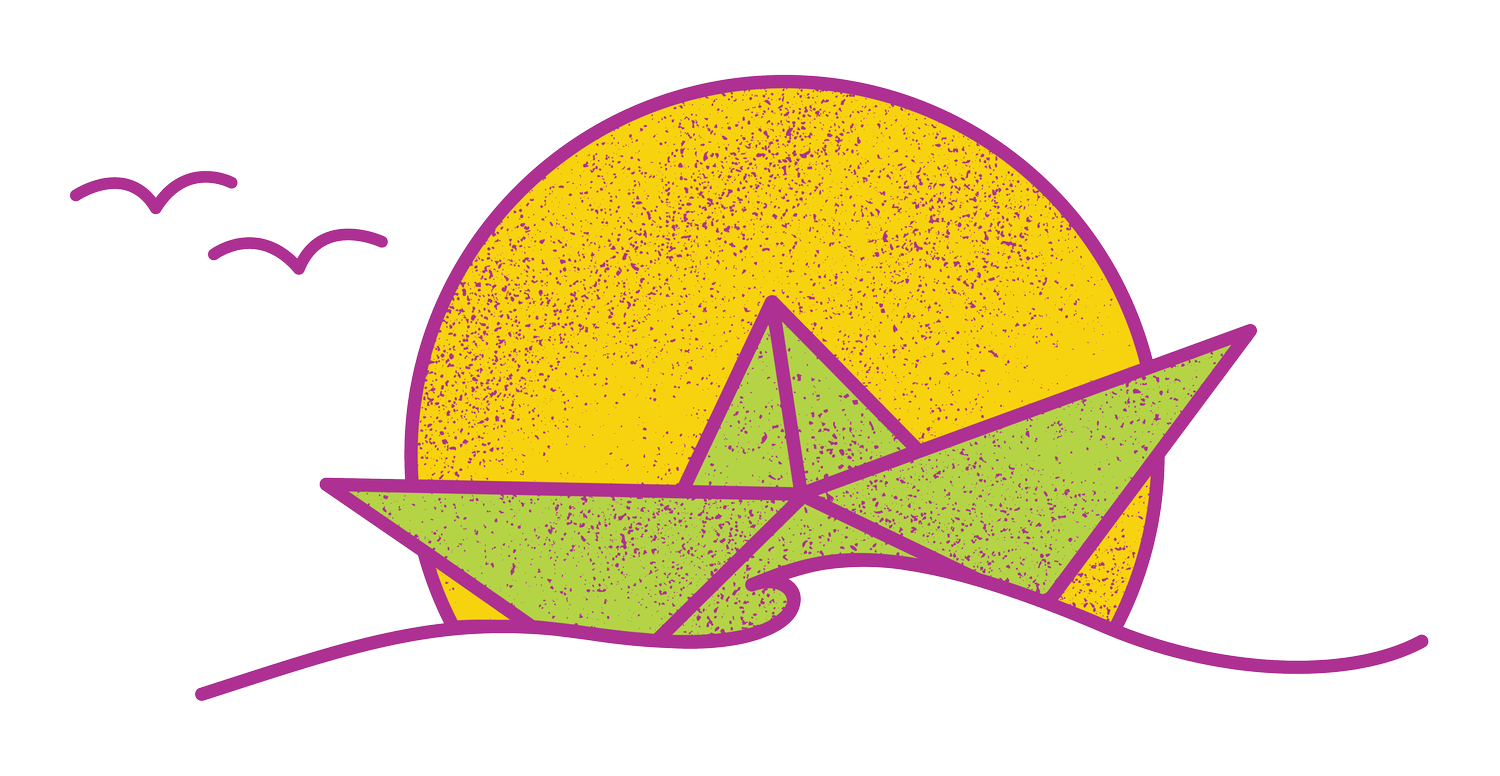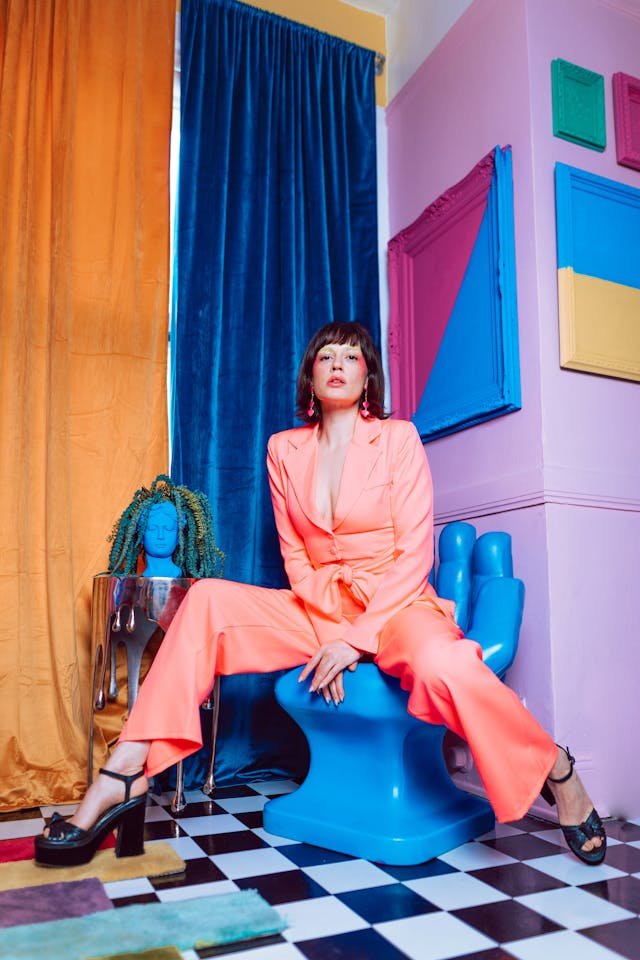What to Look for in a Therapist: How to Find the Right Fit for You
Let’s be real: deciding to start therapy can feel like standing on the edge of a diving board. You know it might be good for you. You’re hopeful. But also? Nervous as heck.
And then there's the next question: How the heck do I find the right therapist?
That’s where this blog comes in.
Whether you’re dipping your toe in or already deep in the search, here are some key things to consider when you’re trying to figure out what to look for in a therapist.
What to Look for in a Therapist, Tip #1: You Deserve to Feel Seen
Research shows that the therapeutic alliance aka the bond between you and your therapist is the biggest predictor of whether therapy will actually help.
Not credentials.
Not years in practice.
Not even modality.
Just… whether you click.
From my own experience as a therapist, things only start to shift when clients feel safe and understood.
When the mask comes off, and they can finally say the stuff they’ve kept buried.
That doesn’t happen with just anyone.
So, as you’re searching, ask yourself:
Do I feel comfortable with this person? Do I vibe with them?
What to Look for in a Therapist, Tip #2: Know What You’re Looking For (Kind of)
You don’t have to have it all figured out.
But a little self-reflection can help guide your search.
Ask yourself:
What am I struggling with?
What kind of support do I think I need?
How would I know therapy is working, what would start to feel different in my life?
Even if the answers are fuzzy, that’s okay.
Just having a sense helps you spot someone whose approach, tone, or experience lines up with what you are looking for.
This step alone will help you feel more confident about what to look for in a therapist who vibes with you and aligns with your needs.
What to Look for in a Therapist, Tip #3: Consider Their Areas of Focus
Most therapists can support you through anxiety/stress.
Though if you're navigating something specific, like queerness, cultural identity, religious trauma, or ADHD, it’s often more helpful to find someone who gets it from the inside.
My jam? Supporting queer, gender-diverse, and neurodiverse youth and young adults (age 10–mid-30s) who are figuring out who they are and how to show up in the world as their full selves.
I’ve noticed the biggest shifts happen when my lived experience and clinical training meet my client’s needs.
If you’re exploring your identity, neurospicy, or feeling lost between cultures,
there’s a good chance we’ll vibe.
What to Look for in a Therapist, Tip #4: Vibe Matters More Than You Think
Yep, vibe is real! You can have the most qualified therapist on paper, but if the energy in the room feels off? It’s a no-go.
So how do you figure this out?
Watch their intro video (if they have one). HERE’s MINE :)
Read their website or Instagram captions, do they sound like someone you could talk to?
Pay attention to your gut: Does their tone feel warm, neutral, clinical, or approachable?
Some folks feel safest with a therapist who shares aspects of their identity like gender, sexuality, cultural background, or faith. Others might prefer someone outside of their community for a sense of neutrality. Both are valid.
I often tell potential clients: if you’re looking for someone with a soft, maternal presence, I might not be your best fit, and that’s okay.
Finding the right vibe means finding someone you can be real with.
And that’s exactly what to look for in a therapist: someone who feels right in the room.
What to Look for in a Therapist, Tip #5: Logistics, Location & Accessibility
Let’s talk practical stuff:
Do you want in-person, virtual, or phone sessions?
Do you need early morning, evening or weekend availability?
Can you commute to their office?
Do you want a walk-and-talk sessions?
For example, I offer in-person sessions in North Burnaby, virtual/phone sessions year-round, and walk-and-talk sessions at Confederation Park when the weather’s nice.
The key is to find what works for you.
Just remember: don’t choose a therapist just because they’re close by or easy to book.
If the connection isn’t there, convenience won’t carry you far.
Thinking through accessibility and flexibility is another key part of what to look for in a therapist who fits your lifestyle.
What to Look for in a Therapist, Tip #6: Budget and Benefits
Therapy is an investment, in time, energy, and money. Sessions can range from $80 to $300+ depending on therapist’s location, credentials, and experience.
Before starting, ask yourself:
What’s your budget?
Do you have extended health benefits (from work, school, or family)?
Would a sliding scale spot help make it more accessible?
Personally, I offer sliding scale spots when available, and most of my clients use extended health benefits.
If you’re not sure what your coverage is, now’s a great time to check in with your provider.
If someone feels like a strong match, it’s always worth reaching out to see if something can be worked out. It’s okay to ask.
Affordability, transparency, and clarity around fees are essential parts of what to look for in a therapist you can consistently work with.
TL;DR: What to Look for in a Therapist
Someone who makes you feel safe and seen
A therapist who understands or is curious about your world
A vibe that feels like “I can be myself with them”
Accessibility that works for your life (but not at the cost of connection)
Financial arrangements that are transparent and manageable
Don’t Give Up Before You Start
Searching for a therapist can feel overwhelming. I’ve been there, scrolling endlessly through profiles, overthinking every word. It’s a lot.
But I promise, finding the right person is worth it.
You don’t have to get it perfect.
Just start. Ask questions. Trust your gut.
And if you’re reading this and thinking, “Hmm, maybe we’d vibe,” I’d love to hear from you.
Let this be your reminder: you deserve support that fits you.
💬 Ready to put this into action? If this post helped clarify what to look for in a therapist, and you feel drawn to the kind of I offer, reach out for a free consult.
Let’s find out if we’re a good fit.
Your story is worth being heard by someone who truly gets it.
HELLO, I AM NITA AGUSTIN
A Registered Clinical Counsellor based in Burnaby, BC. My jam is working with queer youth and young adults, especially those who do not want to be defined by what society told them about themselves. I help clients figure out who they are, who they want to be, and how to get there. We do this by processing how their past impacted the way they live out their life today. From our work together, I noticed clients develop better self-awareness and experience improved quality of life as they can show up differently in their relationships.
I offer virtual and in-person sessions near Brentwood, North Burnaby. I am licensed to practise in BC, as well as all across Canada, so I support clients all over BC, all the way from Vancouver to Kitimat. Other than working with clients who reside in BC, I also can support clients who reside in Yukon Territories, Northwest Territories, Nunavut, Saskatchewan, Manitoba, and Newfoundland.
Check out my About me page to learn more about what I do and have to offer for you. Also, explore my Services page to see how I can guide you in making shifts in your life today. If you feel ready to discover ways to live life on your own terms, I welcome you to book an initial intake session. I am so stoked to meet you and start figuring out how you can show up as your best self









